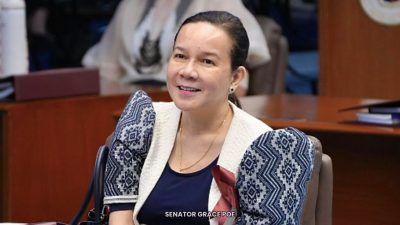By Junex Doronio
MANILA — Over the past 20 years, the community-driven development program advocated by the Kapit-Bisig Laban sa Kahirapan – Comprehensive and Integrated Delivery of Social Services (KALAHI-CIDSS) of the Department of Social Welfare and Development (DSWD) has benefited thousands of communities across the country, and it’s time to institutionalize the program.
Through KALAHI-CIDSS, the DSWD has provided basic social services to more than 22 million poor, vulnerable, marginalized, and geographically isolated households, through 83,155 subprojects. These projects include access roads, improved water systems, medical supplies, tools and equipment, barangay health stations, and Child Development Centers.
“To our lawmakers, and not just to our legislators but also to our community volunteers and the unsung heroes of KALAHI-CIDSS, the program has existed for twenty years. Join us in standing up to continue the program,” appealed KALAHI-CIDSS National Program Manager (NPM) Atty. Bernadette Mapue-Joaquin during the DSWD Thursday Media Forum at the Central Office’s New Press Center in Quezon City.
It was revealed that the initial version of the Community-Driven Development (CDD) bill was filed during the 18th Congress in September 2019.
Three senators also submitted their respective CDD bill versions during the 19th Congress in 2022 and 2023.
“The three versions are scheduled for the first public hearing at the Committee level. They advocate for the institutionalization and operationalization of the CDD approach; provision of capacity building and technical assistance to local government units, civil society organizations, and communities through the DSWD Academy; and creation of an inter-agency advisory council on CDD,” noted NPM Mapue-Joaquin.
Among DSWD’s flagship programs, only the Pantawid Pamilyang Pilipino Program (4Ps) was institutionalized in 2019 through Republic Act No. 11310.
The Food Stamp Program, one of the innovative programs of DSWD Secretary Rex Gatchalian, is currently in the process of being institutionalized after Malacañang issued Executive Order (EO) No. 44, establishing the “Walang Gutom 2027: Food Stamp Program” as a flagship program of the national government.
On May 14, the House Committee on Social Services approved the unnumbered substitute bill to House Bills No. 8532, 8899, 10010, and 10202, all seeking to strengthen the government’s anti-involuntary hunger program.
Mapue-Joaquin emphasized that institutionalizing CDD will create a continuous enabling policy that ensures maximum participation and empowerment of the communities.
“We have helped many communities, but many more still need assistance through our KALAHI-CIDSS program. Please help us continue and legislate the program. Help us continue providing aid to the neediest communities,” stressed Mapue-Joaquin.
(el Amigo/MNM)







